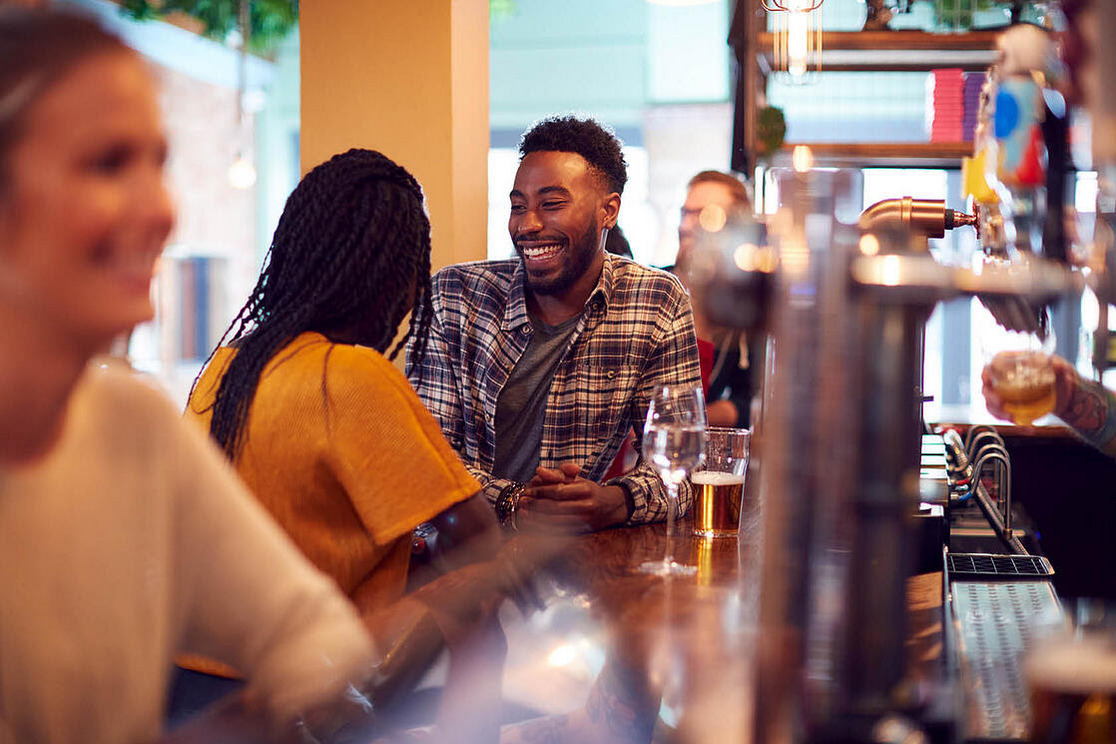July’s like-for-like (LFL) sales at Britain’s top managed pub, bar, and restaurant groups held steady against pre-Covid levels of July 2019, the latest Coffer CGA Business Tracker reveals.
July’s figures were bolstered by the Euros tournament, and there were periods of unusually hot weather that positively impacted outlets with outdoor areas, while deterring consumers from visiting indoor outlets.
The results from the Tracker — produced by CGA by NielsenIQ in partnership with The Coffer Group and RSM UK — represents a drop in LFL sales following the strongest month of growth this year in June. Given the high levels of inflation since 2019, sales are significantly behind pre-pandemic levels in real terms.
Restaurants were the strongest performing of the Tracker’s three hospitality segments in July, with LFL sales at +1.3% versus three years ago. Managed groups’ dine-in only sales were down 8%, suggesting performance for the segment was, in part, supported by consumers opting for deliveries.
Pubs continued to perform reasonably well, with LFL sales growth down by 0.6%, while bars fared worse, with their LFL sales dropping by 1.7%.
The Tracker demonstrates that trading in London continues to struggle, with -2% LFL sales growth, compared to a decline of -1% in June and a flat performance in May. Beyond the M25, LFL sales were up 0.7% as ongoing rail strikes continued to significantly reduce footfall into central London.
Overall like-for-likes are flat compared to 4.7% growth in June (which benefited from bank holidays and the Jubilee) and in decline by 3.3% when sales from deliveries and takeaways are removed from this metric.
Karl Chessell, director, hospitality operators and food, EMEA, at CGA, said: “A flat rate of LFL sales reflects the slow but steady trajectory of the past few months. Operators are acutely aware of the challenges that lie ahead during the second half of 2022.
“Inflation, rising costs, supply chain issues, and staffing challenges are impacting businesses. But the hospitality sector continues to demonstrate extraordinary resilience and remains an important channel for investment long term.”
Mark Sheehan, managing director at Coffer Corporate Leisure, added: “Flat sales on 2019 numbers, in the face of rampant inflationary pressure on every front, may appear catastrophic, but these numbers show the steady progress hospitality is making.
“Those that survive may well thrive, but for operators these improvements need to continue. 2019 is the benchmark for now, but it is not realistic for businesses to survive at these levels. London is improving steadily. Whilst utilities are a concern, recruitment remains the toughest obstacle for most.”
Paul Newman, head of leisure and hospitality at RSM UK, said: “July’s heatwave and rail disruption go some way to explaining these disappointing results, but the overall picture is pretty stark. Sales are significantly behind pre-pandemic levels and that can only spell huge challenges ahead for the leisure and hospitality sector.
“The government’s support throughout the pandemic was absolutely key in saving many businesses. But it could all be for nothing if measures are not reintroduced at pace in the coming weeks and months.
“On taking up office, the new prime minister will have an in-tray full of critical issues to address, but as storm clouds gather at an alarming rate, further government support is needed for a sector that otherwise faces an autumn of discontent, potentially more challenging than Covid lockdowns.”




